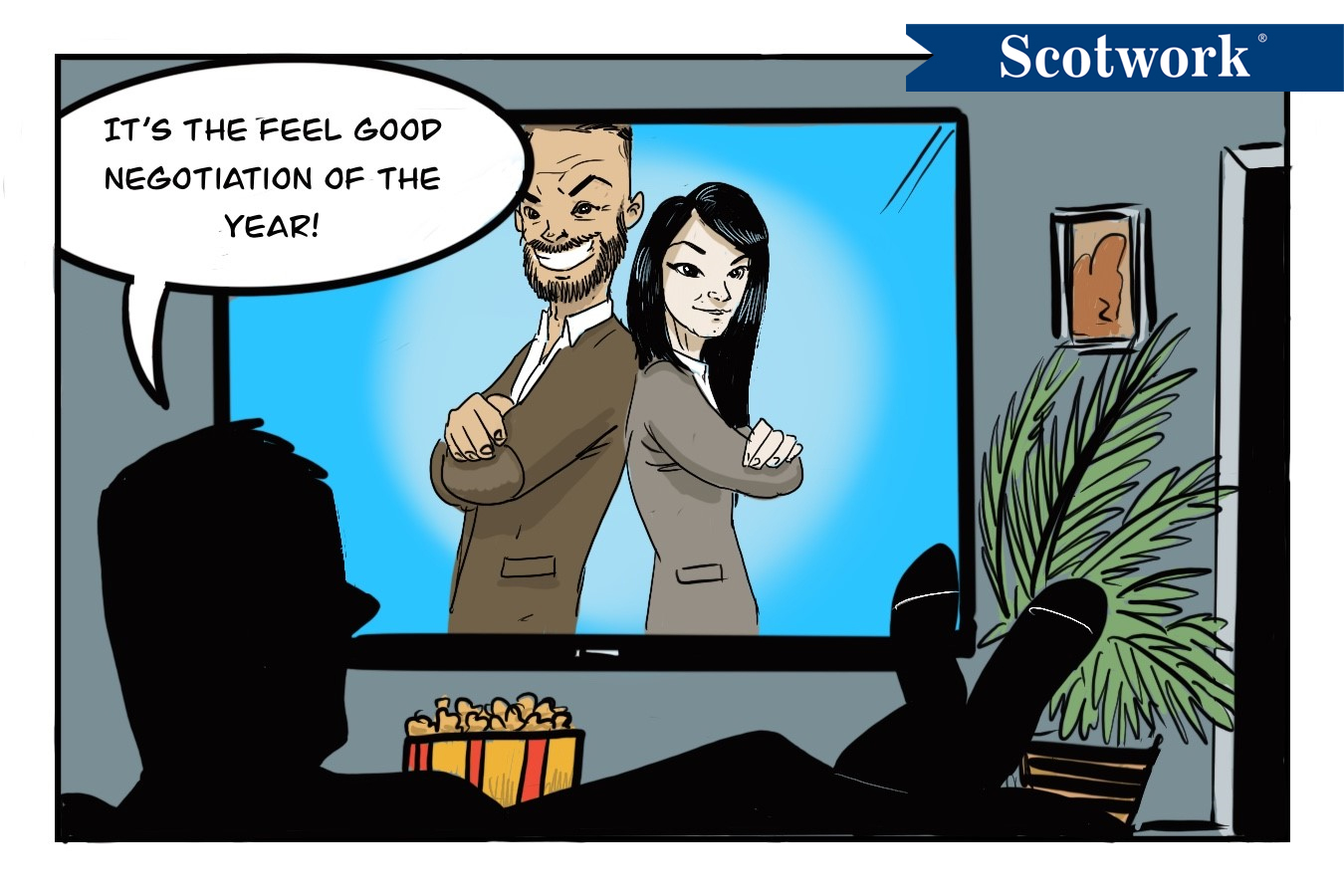For the past month, I’ve been blasted by rom-coms — all with the same storyline: two people meet, sparks fly, someone does something dumb, and after some complications, they make up. Then, cut to: happily-ever-after with an upbeat song. The dumb thing that usually drives them apart? Breaking trust. In real life, breaking trust can be devastating and may not result in a happily-ever-after, particularly in a negotiation. But maintaining trust can make a good relationship great.
In a negotiation, it’s extremely helpful if the parties trust each other. It’s extremely difficult to craft a deal with someone you don’t trust. Particularly if you think they’re not being upfront or are trying to take advantage of you. In my experience, the majority of commercial negotiations are between parties that work together or at least have a working relationship — not typically transactional relationships. Time and again, I’ve observed that good working relationships are about maintaining trust.
So, what if you’re in a negotiation, and the other party is someone you have only a neutral-to-good relationship with? Focusing on trust will help you maintain or strengthen the relationship by the time the negotiation is done. Here are five tips for making that happen . . .
Keep the long-term relationship in view. While it might seem obvious, if you don’t keep your long-term relationship in view, you might make decisions that help you in the short term but are detrimental to the relationship in the long term. For instance, the other side might misspeak about something that’s to your benefit, but you clearly know that’s not what they meant. You might be tempted to not correct the mistake due to the benefit, but it might haunt you later when they realize the issue. To head off future problems, course-correct in the moment.
Be transparent. When we appear to be hiding something, it triggers a lack of trust. Be transparent about what you can and can’t share, instead of being coy or holding your cards too close to your vest. Prepare a reason as to why you can’t share certain information. For example, if you’re not comfortable sharing your profit on a deal, have a reason other than just “no.” I’ve found that “no” doesn’t stop the request and creates unnecessary friction. Tell the other side what you can’t do, but also share what you can do to demonstrate a willingness to work with them. In this example, I’d say something like, “I can’t share our profit margin with you, but I’m happy to share our cost drivers.”
Admit mistakes quickly. We’re human — we all make mistakes! However, in a negotiation, there can be fear that admitting a mistake will lead to a detrimental result. The reality is a bad deal is worse to live with than an honest mistake. Deflecting, blaming others, or making excuses is just wasting time. Instead, when you realize a mistake has been made, own it, apologize, and move on. Admitting mistakes humanizes you in a way that also makes you more trustworthy. It’s better to own it now than to have to explain it later.
Find mutuality. In any negotiation, it’s extremely helpful to identify the reasons why you and the other person want a deal. But when we’re also trying to build trust, finding the areas of commonality helps create a bond and gives your negotiation a mutual purpose. This doesn’t mean you both need to define success the same way; having mutuality will help you stay focused on the deal at hand as well as the long-term relationship.
Be consistent. Doing what you say you’re going to do is an important ingredient of building trust. Consistently honoring your word builds a level of surety that’s essential to maintaining trust. Your consistent behavior also encourages the same from the other side. We tend to reciprocate what we receive, and people will very likely mirror your consistency when they receive and benefit from it.
Focusing on trust and improving relationships in a negotiation requires you to be thoughtful and mindful throughout. If you are, you can avoid being the dumb one in your own rom-com and skip to happily-ever-after in your business dealings.
We Can Help You Get to Happily-Ever-After in Your Business Deals.
Bringing in an expert can help you build trust in your deals and focus on the benefits of the long-term relationship. When you rely on Scotwork experts’ nearly 50 years of real-world experience, you can avoid the pitfalls of trust issues and short-term thinking in your deals.

